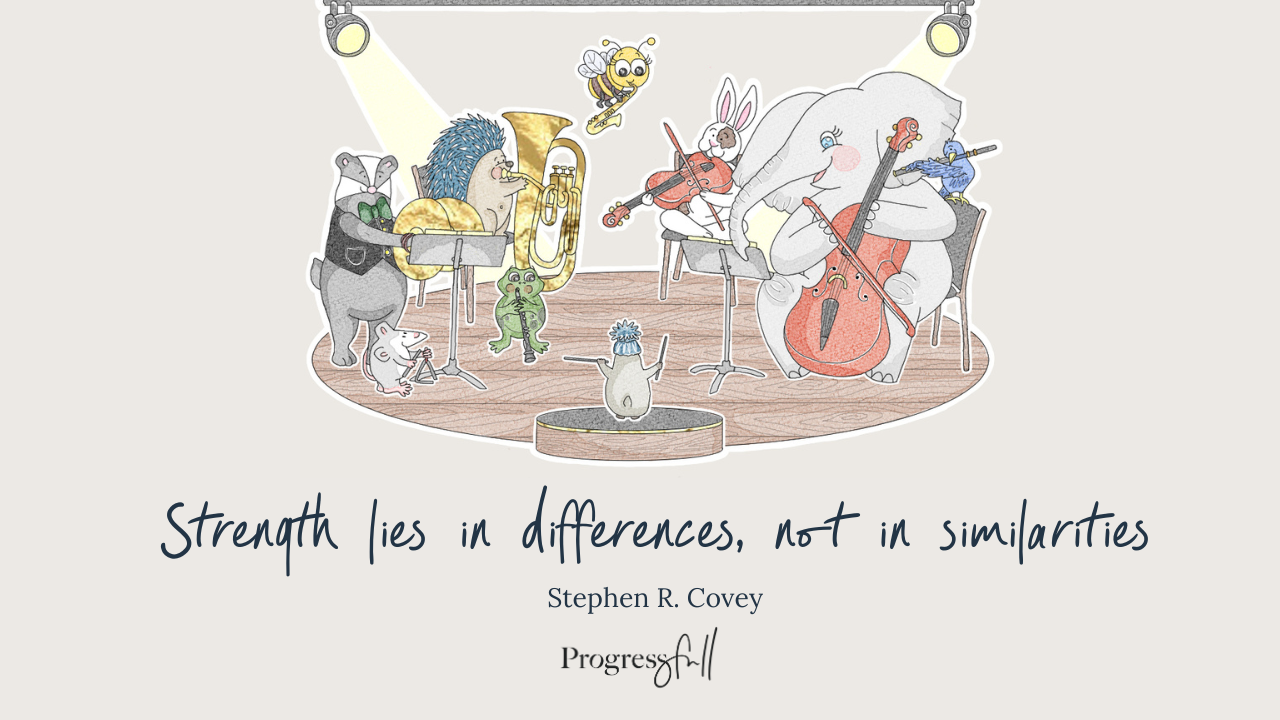Connect diverse perspectives by communicating mindfully

“The single biggest problem with communication is the illusion that it has taken place.” — George Bernard Shaw
This powerful insight from the Irish playwright and political activist hits the mark every time. How many times have we assumed our message has been clear, only to find that others didn’t understand it at all? It's easy to fall into the trap of thinking we've communicated effectively when, in reality, we haven't
When we think of effective communication or great "people skills," terms like empathy, storytelling, and personality often come to mind. But despite these being hallmarks of successful communicators, many of us struggle to communicate mindfully, especially when engaging with people who are different from ourselves—those with different backgrounds, skills, cultures, or generations
Why does this matter? Because being able to communicate well with people from diverse backgrounds is essential for fostering diverse perspectives. It opens the door to new ideas, promotes creativity, and helps teams solve problems in innovative ways. These conversations also help uncover blind spots, anticipate challenges, and ensure everyone adapts more effectively to change—whether at work, at home or in our whole life
Moreover, teams composed of individuals with diverse perspectives are far more likely to generate pioneering ideas than those made up of similar individuals. Communicators who excel in fostering an environment where everyone feels respected, valued, and heard contribute to stronger teams with higher engagement and satisfaction levels. This, in turn, drives productivity and performance

So, the ability to communicate mindfully, especially across differences, isn’t just a skill—it’s a game-changing strategic advantage
In today’s diverse world, is a vital skill for success in both personal and professional settings so here’s some first steps to help you kick-start your approach
Three tips for communicating mindfully not mindlessly
-
Seek common ground Rather than simply speaking “in someone’s direction,” try to focus on what you share—your perspective, personality, goals, or values. This helps bridge the gap between you and others and is more mindful
-
Be present Instead of letting your mind wander or start to prepare your rebuttal for when it’s your turn to speak, really listen and engage with what the other person is saying. Connecting genuinely with others makes for more meaningful and mindful conversations
-
Be self-aware Pay attention to how your behaviour or emotions influence communication. Acknowledge how your listening skills—and your ability to remain neutral and truly hear others—can affect the outcomes of your conversations. All too often we trip ourselves up by not being mindful of how we are influencing communication unconsciously through our reactions
Mindful communication has a ripple effect—it sparks understanding, empathy, and ultimately, connection. It’s not just good practice; it’s vital for personal and professional growth. In a world that’s often divided, mindful communication is a beacon of hope, helping us bridge gaps and thrive together
At Progressfull, we believe in the power of strong people skills. That’s why we created the People Muscles Upskill. This dynamic, comprehensive resource includes bite-sized videos, private podcasts, one-on-one mentoring sessions, personalised journals, and reflective exercises—designed to help you develop your people skills and communication strength
The goal? To help you become a mindful communicator, ready to excel across differences in any environment, from the boardroom to the break room, and everywhere in between
Level up your People Muscles today and unlock your full potential




